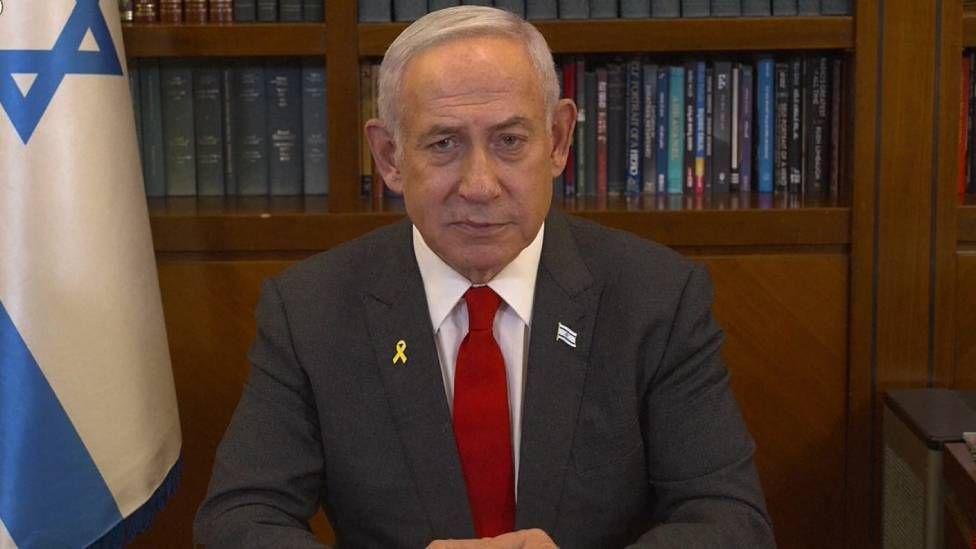Hamas releases first Israeli hostages after Gaza ceasefire takes effect
Watch: hugs and tears as freed hostages reunite with family
- Published
Three female Israeli hostages held by Hamas in Gaza for 15 months have been released and brought back to Israel, after a long-awaited ceasefire deal took effect.
Romi Gonen, Doron Steinbrecher, and Emily Damari, who is also a British citizen, were due to be freed in exchange for 90 Palestinian prisoners in Israeli jails.
The start of the ceasefire was delayed by several hours on Sunday morning, after Hamas was late confirming the hostages' names. Nineteen Palestinians were reportedly killed in Israeli strikes before the list was delivered.
Once the truce began, hundreds of displaced people began heading back to their homes across Gaza and convoys of lorries carrying desperately needed humanitarian aid crossed into the territory.
The three-phase deal was brokered last week by the US, Egypt and Qatar, where the foreign ministry spokesman said it was a "deal for hope" and the "last chance for peace".
The first phase lasting six weeks should see a total 33 Israeli hostages held by Hamas exchanged for about 1,900 Palestinian prisoners and detainees from Gaza.
Israeli forces will also withdraw from densely populated areas of Gaza, displaced Palestinians will be allowed to begin returning to their homes, and hundreds of aid lorries will be allowed into the territory each day.
Negotiations for the second phase - which will see the remaining hostages released, a full Israeli troop withdrawal and "the restoration of sustainable calm" - should start in just over two weeks.
The third and final stage will involve the reconstruction of Gaza, which could take years, and the return of any remaining hostages' bodies.
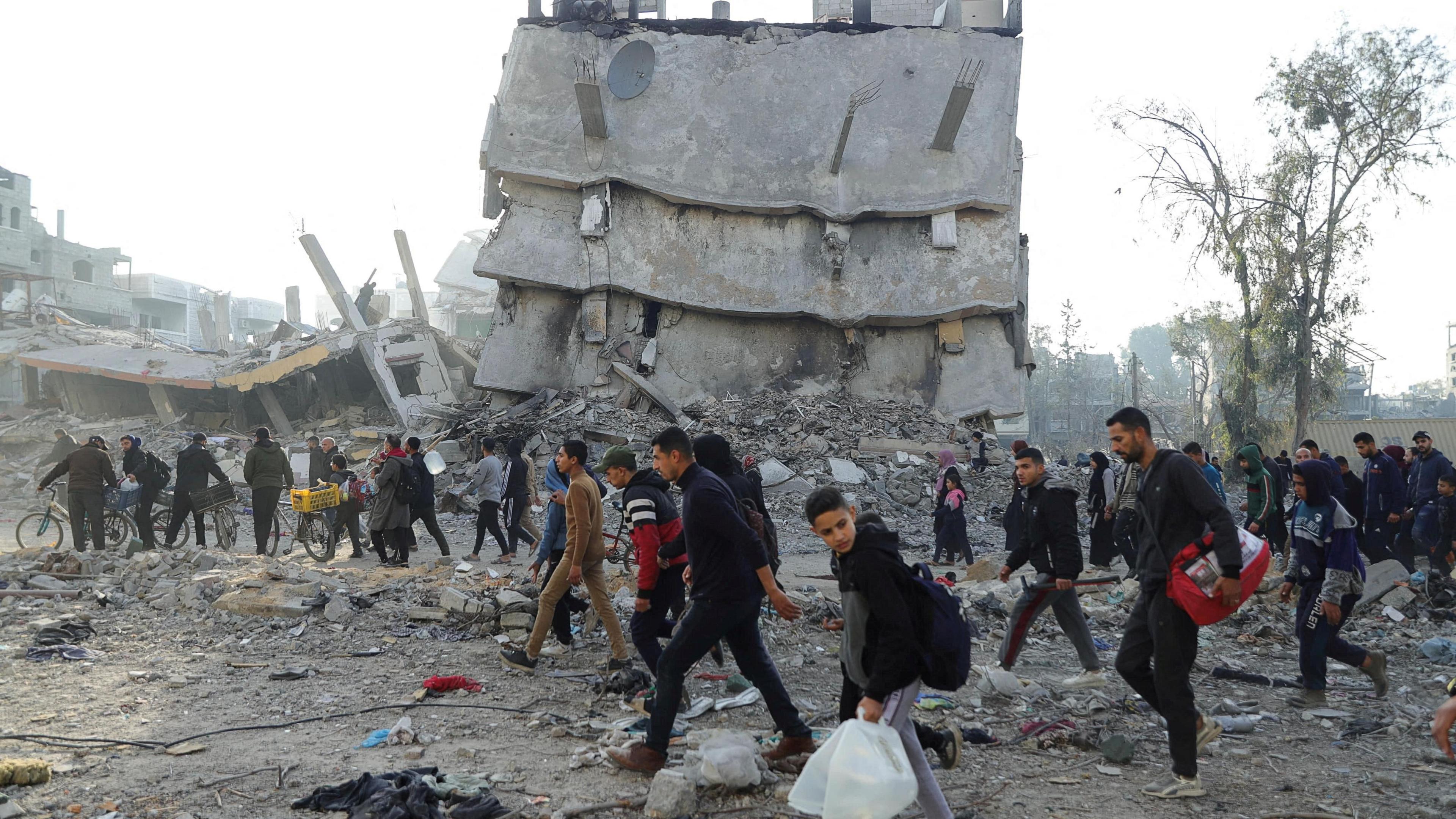
Thousands of displaced Palestinians began returning to their homes after the ceasefire took effect
The ceasefire seemed fragile and uncertain until the very last moment on Sunday.
It was due to start at 08:30 local time (06:30 GMT), but the Israeli government said Hamas had not delivered the names of the first hostages to be freed in exchange for Palestinian prisoners.
Hamas said the delay was caused by "technical field reasons", adding that it was still committed to the agreement.
The Hamas-run Civil Defence agency said 19 people were killed and 36 were wounded in Israeli air and artillery strikes across Gaza during the delay.
The Israel Defense Forces (IDF) said it struck Hamas military infrastructure and armed fighters in vehicles.
The ceasefire eventually took effect at 11:15, after the Israeli government said it had received the hostages' names.
The government later identified them as Emily Damari, 28, who was abducted from Kibbutz Kfar Aza during Hamas's 7 October attack on southern Israel; Doron Steinbrecher, 31, who was also kidnapped in Kfar Aza; and Romi Gonen, 24, who was abducted from the Nova music festival.
Thousands of people gathered in front of a big screen in Tel Aviv's "Hostages Square", waiting for news about the women.
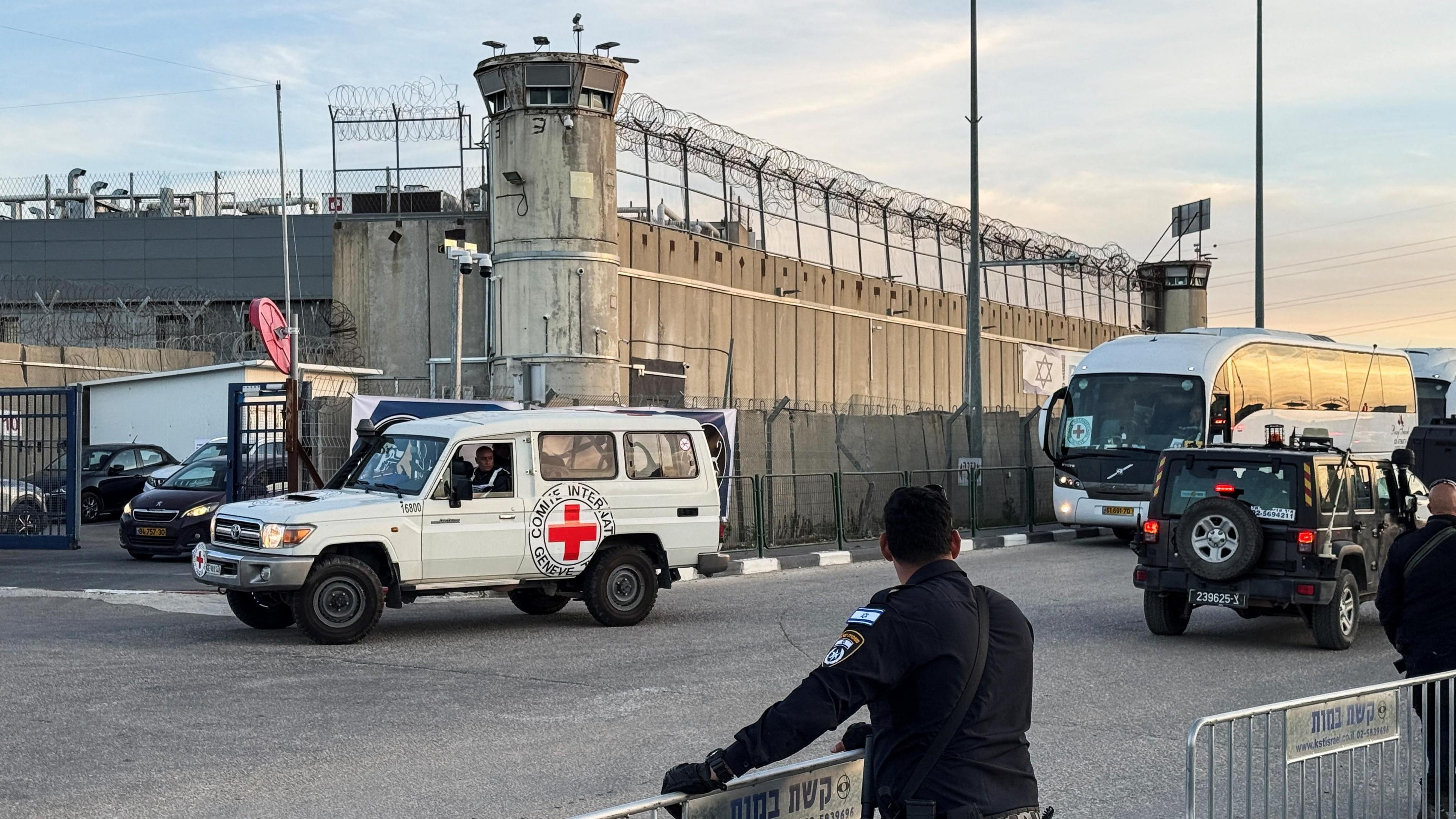
Coaches earlier arrived at Ofer prison in the occupied West Bank ahead of the release of Palestinians in exchange for the Israeli hostages
At around 17:15, the IDF said the International Committee of the Red Cross (ICRC) had "communicated that the three Israeli hostages were transferred to them and are on their way toward IDF and ISA [Shin Bet security service] forces in the Gaza Strip".
Video footage from Saraya Square in central Gaza City showed armed Palestinian gunmen wearing camouflage uniforms escorting several ICRC vehicles through a large crowd.
A senior Hamas official told AFP news agency that the women had been handed over "after a member of the Red Cross team met them and ensured their wellbeing".
About 40 minutes later, the IDF announced that the women had crossed into Israeli territory, accompanied by Israeli special forces.
They were first taken to a military base in southern Israel, where they were reunited with their mothers and underwent an initial medical assessment.
From there, they were flown by helicopter to Sheba Medical Center near Tel Aviv, where the rest of their families were waiting. Doctors there said the women were in stable condition and would be monitored for a few days.
Emily Damari's mother, Mandy, said: "While Emily's nightmare in Gaza is over, for too many other families the impossible wait continues."
"Every last hostage must be released, and humanitarian aid must be provided to the hostages who are still waiting to come home," she added.
The IDF said three to four additional hostages would be released each week during the rest of the ceasefire deal's first phase.
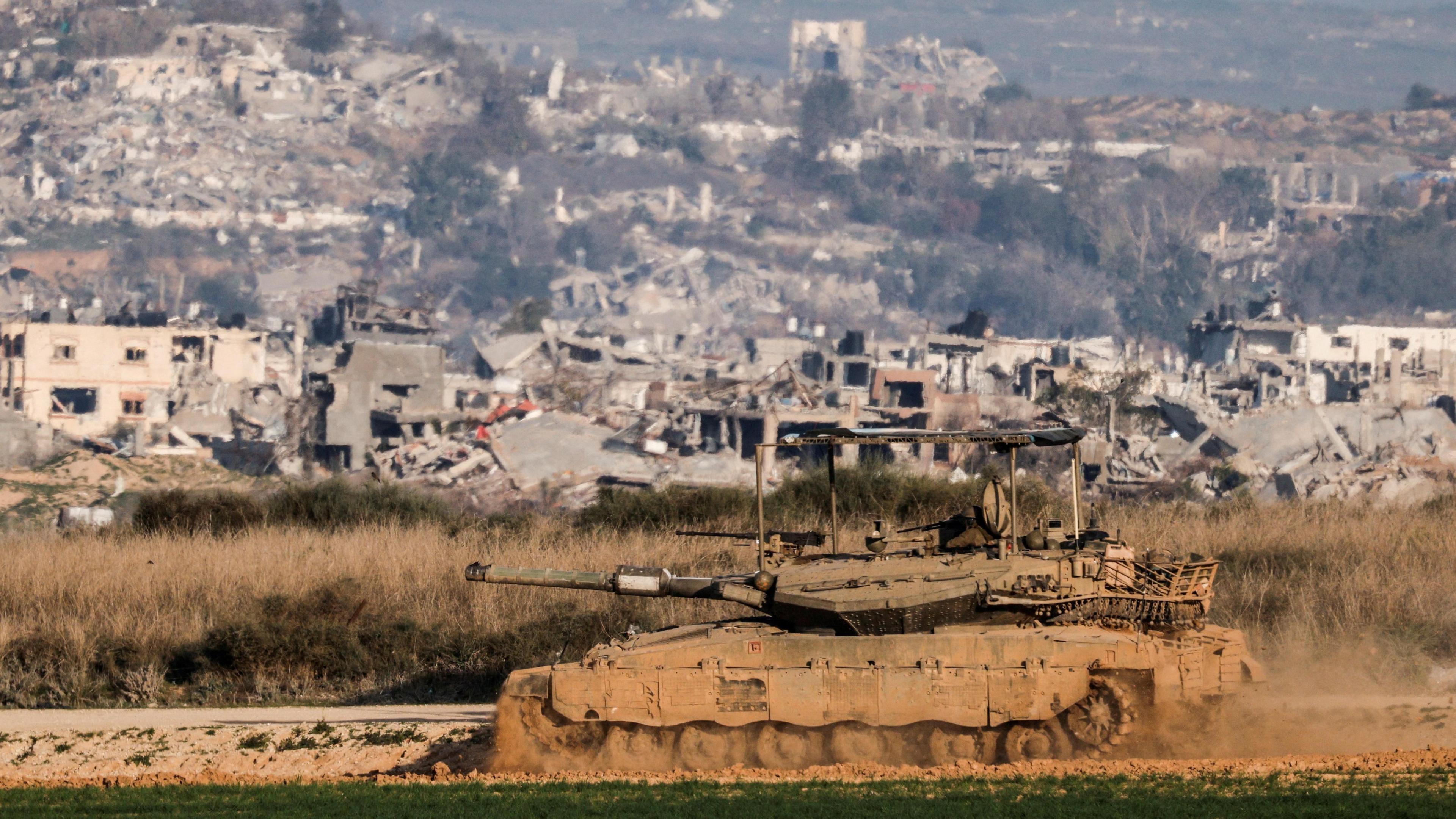
Israel's prime minister said it reserves the right to resume the Gaza war if the ceasefire breaks down
Earlier, pictures from northern Gaza showed some of the 1.9 million Palestinians displaced by Israeli strikes, evacuation orders and fighting attempting to return to their homes.
Among them was Fuad Abu Jilboa, who was walking north towards Jabalia.
"Massive, indescribable destruction, unlike anything history has ever witnessed before," he said.
"It's an unjust and criminal war. But, God willing, with our will, faith in God and strength, we will rebuild and live."
A young woman hoping to return to her home in the southernmost city of Rafah from the Israel-designated "humanitarian area" in al-Mawasi said the ceasefire news had evoked "a feeling of extreme joy".
"No-one in the Gaza Strip could imagine that they would experience such a great moment," she said.
She said she would continue trying to return to Rafah "even if the war is waged 100 times again".
"The war will, sooner or later, come to an end, but the homeland will remain, and the resistance will grow stronger," she added.
In the occupied West Bank, Palestinian families were gathering near Ofer prison to greet some of the first Palestinian prisoners and detainees to be released under the ceasefire deal.
Ninety prisoners, the majority of them women, should be freed by Israel in return for the first three hostages.
Watch: Cautious celebrations in Gaza as ceasefire begins
The ceasefire and hostage exchange have been welcomed by leaders around the world.
"After so much pain, death and loss of life, today the guns in Gaza have gone silent," outgoing US President Joe Biden said.
"Now it falls to the next administration to help implement this deal. Success is going to require persistence," added.
President-elect Donald Trump's incoming National Security Adviser Mike Waltz warned that if Hamas reneged on the ceasefire the US would support Israel. He also said it would be unacceptable for Hamas to ever govern Gaza.
Israeli Foreign Minister Gideon Saar said: "Unfortunately, we haven't met the objective of dismantling Hamas's military and governmental capabilities... But we are committed to do so."
On Saturday night, Prime Minister Benjamin Netanyahu warned that any ceasefire would be "temporary", and that Israel reserved the right to resume the war, with US backing, if it broke down.
The comments appeared to be aimed to placate far-right ministers in cabinet ministers against the deal.
However, National Security Minister Itamar Ben-Gvir and two other ministers from his right-right Jewish Power party, Yitzhak Wasserlauf and Amichai Eliyahu, said on Sunday that they had resigned in protest.
Ben-Gvir has said his party will not try to bring down Netanyahu's governing coalition in parliament, where it now has a razor-thin majority.
The Israeli military launched a campaign to destroy Hamas - which is proscribed as a terrorist organisation by Israel, the US and others - in response to an unprecedented cross-border attack on 7 October 2023, in which about 1,200 people were killed and 251 were taken hostage.
More than 46,910 people have been killed in Gaza since then, according to the territory's Hamas-run health ministry. Most of the 2.3 million population has also been displaced, there is widespread destruction, and there are severe shortages of food, fuel, medicine and shelter due to a struggle to get aid to those in need.
Israel says 91 of the hostages are still being held by Hamas, of whom 34 are presumed dead. In addition, there are three Israelis who were abducted before the war, one of whom is dead.
On Sunday morning, the Israeli military announced that special forces had recovered the body of Staff Sgt Oron Shaul, an Israeli soldier who was killed in the 2014 war in Gaza.
- Published27 February
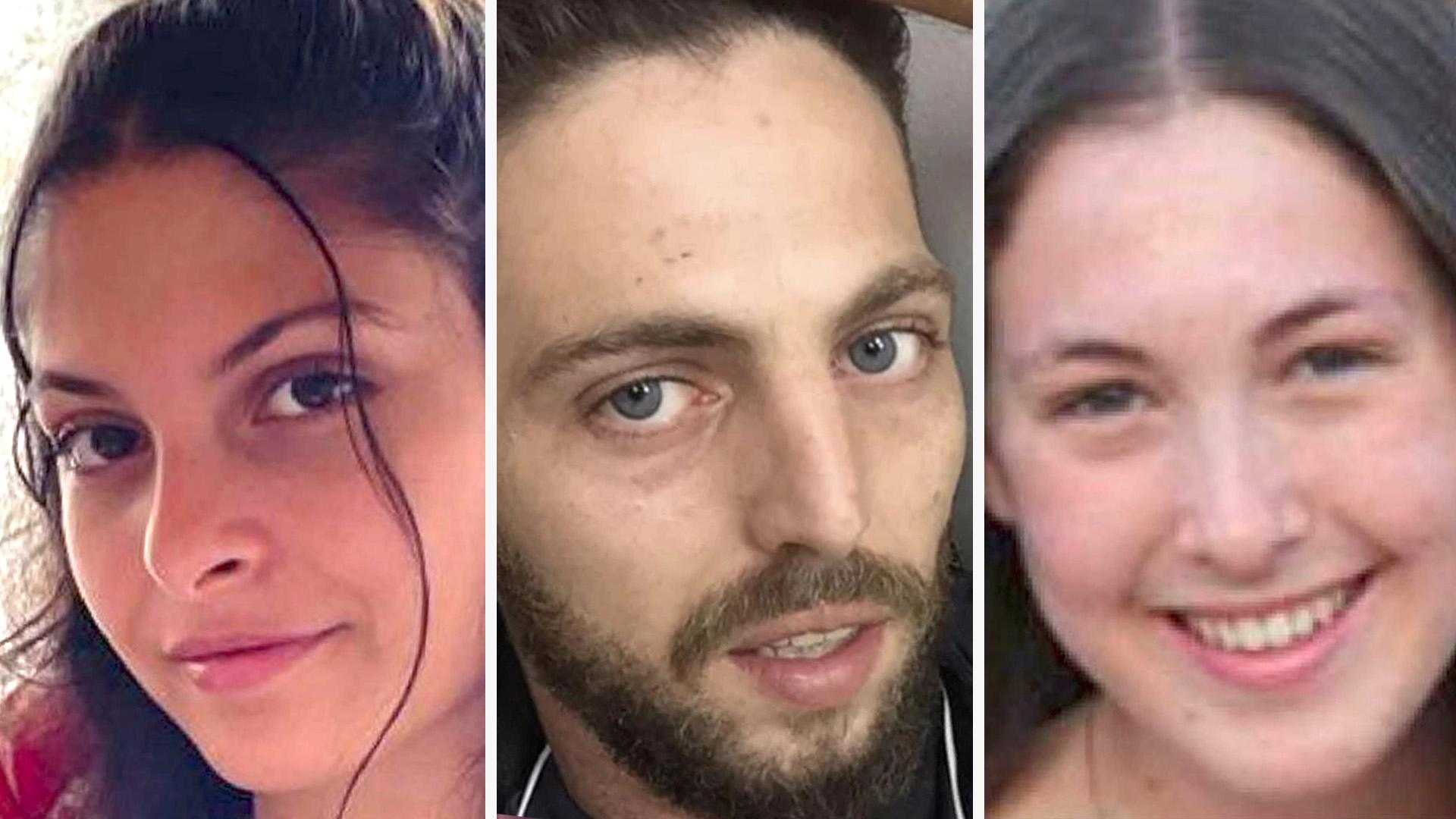
- Published18 January
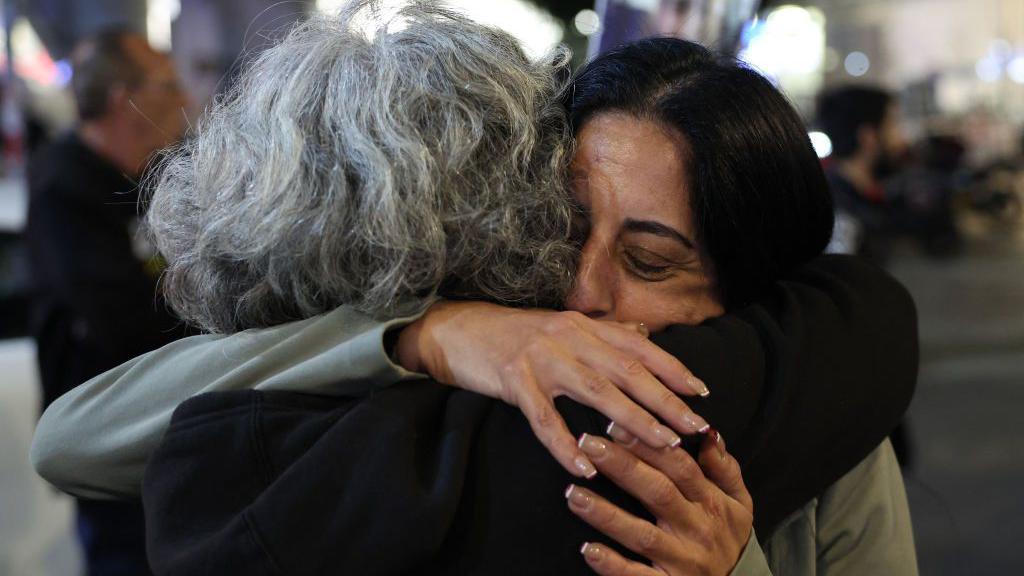
- Published18 March
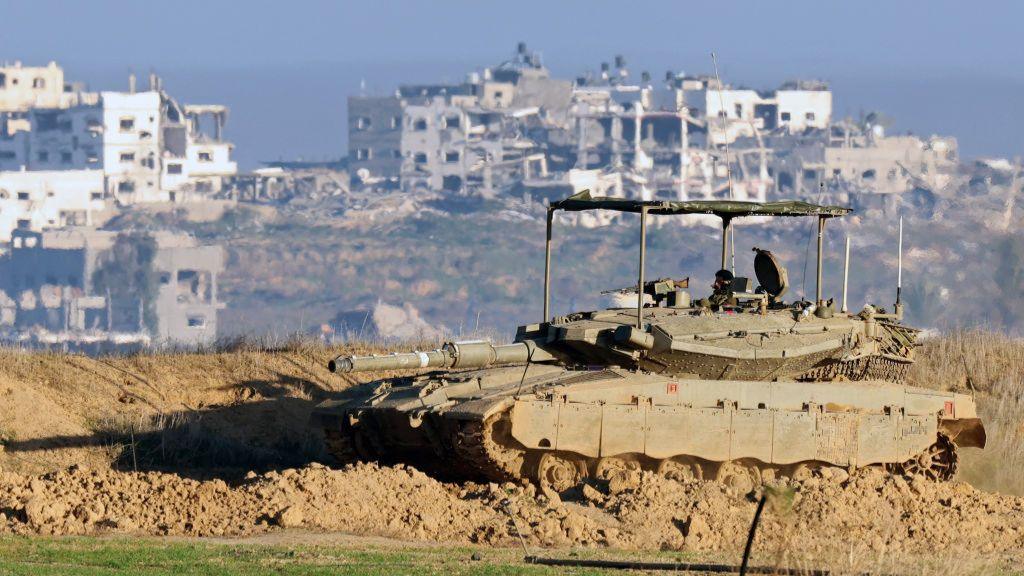
- Published19 January
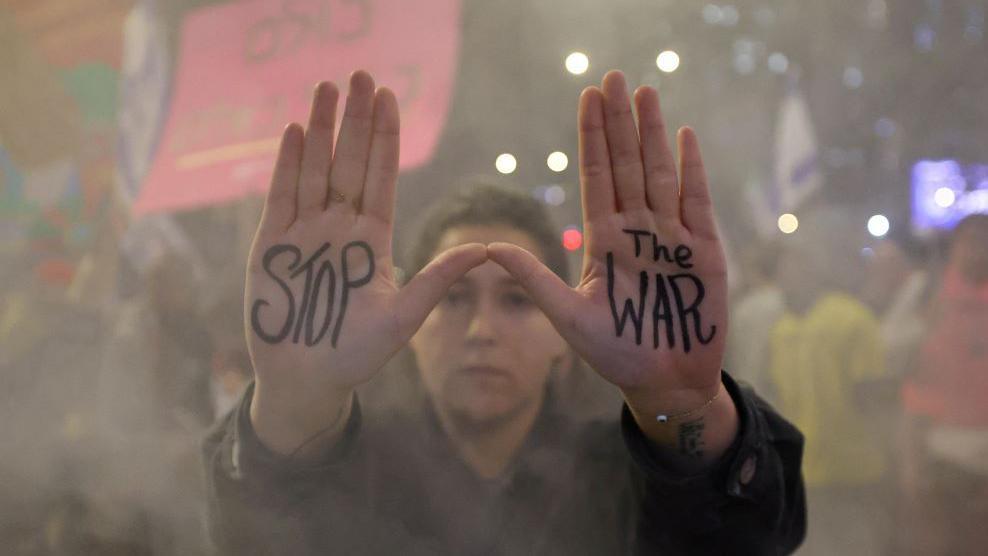
- Published18 January
